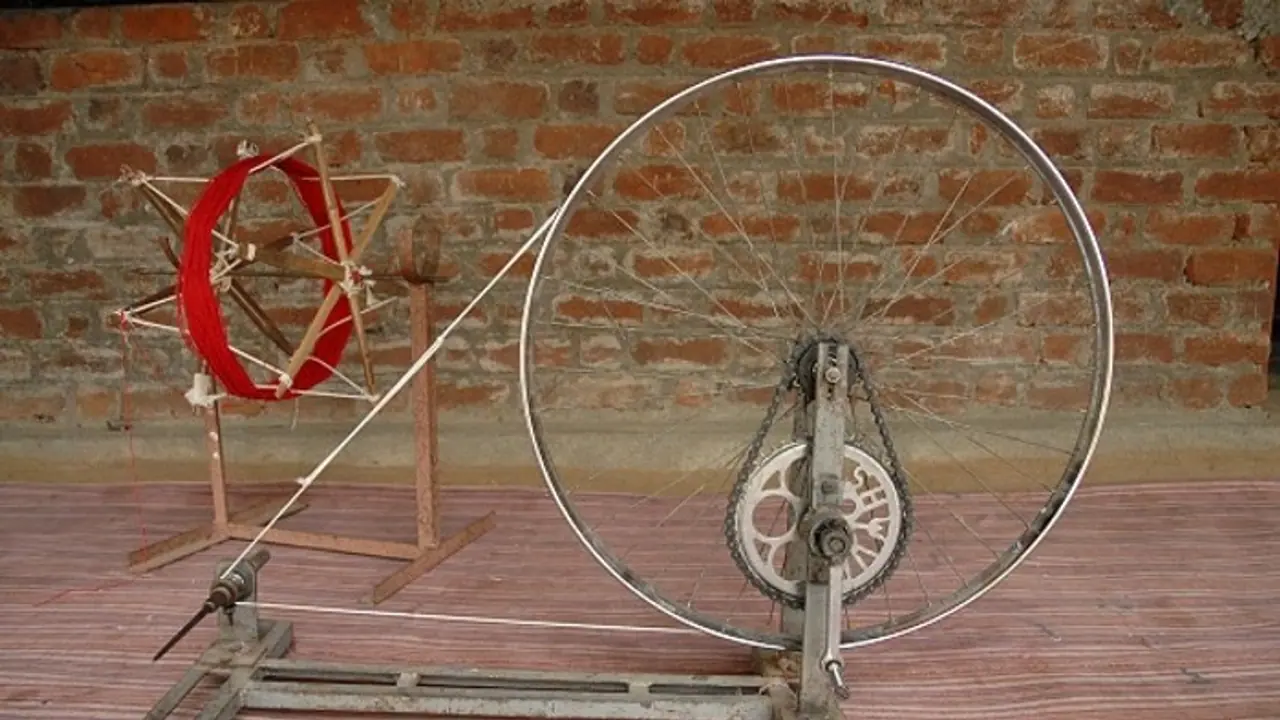For the past 12 years, Madhav Sahasrabudhe hasn’t purchased a single piece of clothing, choosing instead to embrace a lifestyle as uncommon as it is environmentally conscious.
For the past 12 years, Madhav Sahasrabudhe hasn’t purchased a single piece of clothing, choosing instead to embrace a lifestyle as uncommon as it is environmentally conscious. This former mechanical engineer from Belgaum spins his own yarn using a charkha, the same spinning wheel that Mahatma Gandhi popularized during India's independence movement. With his hands weaving both history and sustainability, Madhav not only spins his fabric but also stitches his garments from scratch at home.

12 years of weaving eco-friendly fashion: Madhav's journey
According to a report by Times of India (TOI), Madhav's journey into this self-sustained lifestyle began back in 2008. One fateful evening, during a village council meeting, he watched a 90-year-old man effortlessly spin yarn on a box charkha. This moment ignited a deep passion within him and set him on the path to mastering the craft of spinning.
Sahasrabudhe’s association with social workers and activists played a pivotal role in shaping his outlook. Despite holding a senior position and bringing home a hefty paycheck, Madhav found himself increasingly troubled by the growing exploitation he witnessed in corporate life. The contrast between the complex demands of his job and the simplicity of spinning thread led him to question the true value of his labor. At the age of 50, enlightened and resolute, he made the bold decision to retire early, pouring his heart and soul into promoting charkha spinning through workshops and exhibitions.
Over the past 12 years, Madhav has conducted workshops across the country, teaching nearly 2,500 people the art of spinning. While he estimates that only about 200 participants continue to spin regularly, he believes each person who attends learns to appreciate the deeper significance of the practice. To Madhav, spinning isn’t just a slow craft—it’s a rebellion against the wasteful and exploitative culture of fast fashion.
“Spinning builds an attachment to the articles one produces,” he explains. The intimate process from maker to wearer invites people to recognize the labor behind their clothing and, in turn, become less wasteful. Sahasrabudhe dreams of a peaceful society grounded in Gandhiji’s Ahimsak Samaj—a non-violent and self-sufficient community.
He notes that many individuals, especially in the fast-paced world of IT, are drawn to charkha spinning as a way to slow down their hectic lives. “People with ample finances but scarce time seek out charkha for its calming nature,” he remarks. The fact that young people from diverse cities are now spreading the art fills him with immense satisfaction and hope for the future.
While deeply respectful of Gandhi's legacy, Madhav sees a distinction between the man and the charkha. He emphasizes that the spinning wheel existed long before Gandhi made it iconic. “You can say I’m a Gandhian, but I can only practice about 1 percent of what he taught,” Madhav admits with humility.
The pandemic may have temporarily disrupted charkha-related activities, but the practice is now flourishing again, especially around Pune and Pimpri-Chinchwad, with Gandhi Bhavan in Kothrud serving as a hub for enthusiasts.
Madhav acknowledges the philosophical divergence between Gandhi and Dr. B.R. Ambedkar, with the former being a champion of village life and the latter a critic of it. However, he urges people to draw inspiration from both schools of thought. In his words, “We must channel our energies into productive work and strive for self-sufficiency, rather than getting caught up in divisive debates.”
